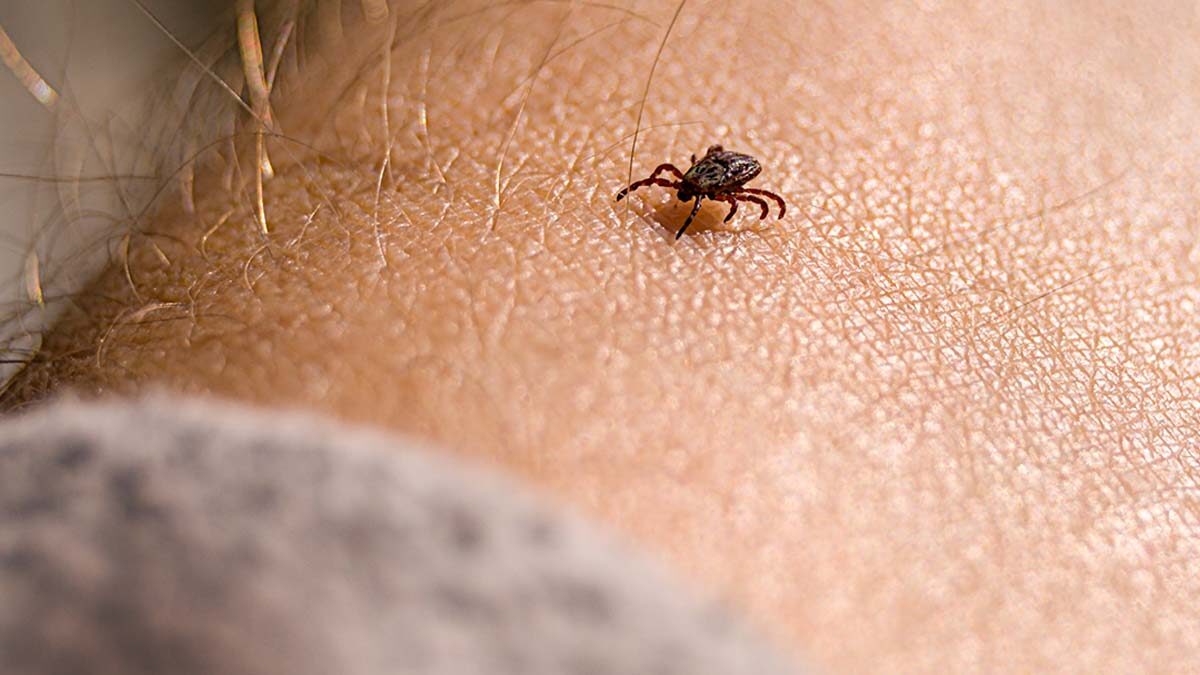In a previous video Alpha Gal and the Lone Star Tick, I started talking about a tick bite-induced meat allergy, called Alpha-Gal, that is unlike any other food allergy we know. The most interesting feature of the reactions may be that first symptoms can occur hours after eating meat. Normally, an allergic reaction to a bee sting, for example, happens within minutes. With this meat allergy, we could have a piece of bacon for breakfast, and our throat wouldn’t start closing off until the afternoon. Because the cause and effect are temporarily separated, we often blame other factors, such as what we ate for lunch, or we just call it “spontaneous” or “idiopathic” anaphylaxis, which is just doctor-speak for “we have no idea what the cause is.”
The delay likely occurs because the alpha-gal is probably absorbed along with the fat in meat, given that the allergic reaction occurring four to five hours after meat ingestion corresponds to the peak absorption time of fatty acids from the intestinal tract.
What makes the allergy even more difficult to diagnose is that the majority of victims experience only occasional overt reactions, despite regular meat consumption. Fattier meats, like pork rinds, may provoke episodes more consistently and severely, but still don’t trigger a reaction every time.
Tick bite-induced meat allergy is on the rise. Ten years ago we didn’t even know this thing existed, but now in tick-ridden states as many as 20% of the population have these anti-meat allergic antibodies (See Tick Bites, Meat Allergies, and Chronic Urticaria). And more and more people are coming in affected, though probably no more than 10% who test positive go on to experience hives or serious allergic reaction to meat.
We’re also seeing it more and more in kids. Researchers in Virginia have found that it is not uncommon, though identification of the allergy may not be straightforward. Unlike in adults, who frequently present with systemic reactions, the majority of children with this syndrome present with just skin manifestations, such as hives. However, this doesn’t mean it’s not serious. In fact, nearly half the kids ended up in the ER, and about 1 in 12 needed to be hospitalized.
Up to a quarter of the population breaks out in hives at some time in their lives, but some children can be affected for weeks or months. It can be triggered by infections, foods, drugs, parasites, or be autoimmune, but in a large subset of cases we don’t know what the trigger is, and so, call it chronic “idiopathic” urticaria. It’s a common thing pediatricians see. The only cure is avoiding and eliminating whatever is triggering it, but in three quarters of cases, we have no clue.
We now know that many children who had been diagnosed with mysterious hives or allergic reactions and may have been specifically told that the reactions were not a result of a food allergy, may have actually been suffering from anti-gal meat allergies. The serious nature of the reactions and the rising frequency of allergic swelling and hives across all age groups underscore the importance of identifying what’s going on, and physicians should keep this new diagnosis in mind.
Allergies to meat might be more common than previously thought, as much as 2% of the population (which would mean millions of people). But to put this in context, Americans are much more likely to suffer an anaphylactic reaction due to seafood, tick bite or not, no matter where they live. A national survey of emergency rooms found shellfish was by far the most frequently implicated food, and unlike many other allergies, kids don’t tend to outgrow fish and shellfish allergies.
Some fish allergies are actually allergies not to the fish, but to worms in the fish, like anisakis, which are found particularly in cods, anchovies, and squids. Exposure to these parasites in fishes, living or dead, is a widespread problem. In fact, we can even have an allergic reaction to the parasitic fish worm when we eat chickens that were fed on fishmeal. This is one of the ways someone who’s allergic to fish could get triggered by chicken.
Because of these worms, researchers recommend that people stop eating seafood and sushi altogether, because besides inducing allergenic reactions, the worms may cause a leaky gut syndrome, which often is unrecognized and can predispose someone to other, more important pathologies than just being itchy all over.
I previously covered anisakis in Allergenic Fish Worms and other allergenic parasite reactions in Chronic Headaches and Pork Tapeworms.
The worms might not be the only thing increasing allergies in fish. See:
I also did a 4-part series on allergies in general if anyone’s interested:
- Preventing Asthma With Fruits and Vegetables
- Treating Asthma With Fruits and Vegetables
- Treating Asthma With Plants vs. Supplements?
- Treating Asthma and Eczema With Plant-Based Diets
In health,
Michael Greger, M.D.
PS: If you haven’t yet, you can subscribe to my videos for free by clicking here and watch my full 2012 – 2015 presentations Uprooting the Leading Causes of Death, More than an Apple a Day, From Table to Able, and Food as Medicine.
